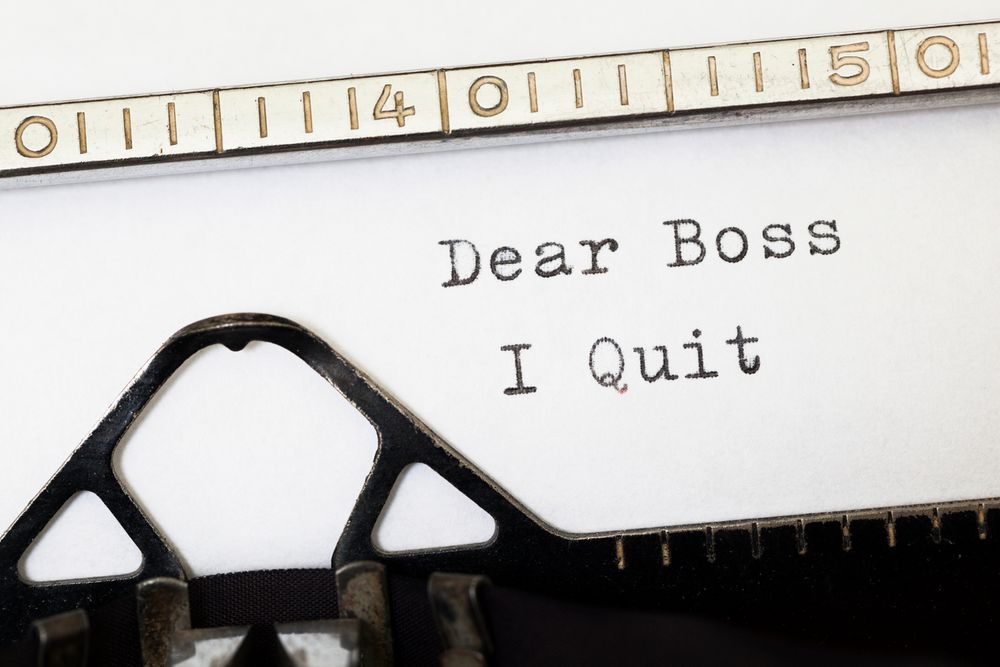
It's unusual for people to get fired out of the blue. Typically, you can tell when you are about to be fired. There are several telltale signs, and any one of them can put you on edge. It brings up a difficult question- should you quit, or should you allow your boss to fire you? Find out the best way to handle the situation And walk away with a bright future.
Before you decide how to proceed, you should ask yourself a few questions. There isn't a one-size-fits-all solution to the situation. For some people, resigning is the best option. But others could benefit more from waiting for their boss to fire them.
These questions can help you make the best decision and set you up for success.
First, consider your journey and how far you have to go before you reach your dream job. If you're just starting out, you probably don't have much money saved up. In this case, you may need to rely on unemployment benefits. The only way to get those benefits is to allow yourself to be fired. Individuals who willingly quit are ineligible for unemployment benefits.
In addition to the financial strain, you should also think about your resume. As a newbie in the workforce, you can expect hiring managers to scrutinize your resume. They could see you quitting a job as a red flag and assume the worse. On the other hand, someone who has years of experience and a history of employment with the same company doesn't need to worry as much about seeming like a flight risk.
People with years of experience have more credibility, and this makes it easier to quit. Consider this example. You've spent ten years with the same company. If you quit and have a good reason for quitting, a future employer is likely to believe your story. Why would you throw away your years of service?
Your tenure also gives you leverage. To prevent you from saying bad things about the company, HR might offer you a severance package. Because of your longevity and experience, you can negotiate a better deal.
As much as your career matters, your mental health trumps all. If you're miserable at work every day and struggling to get up every morning, you shouldn't continue to suffer. Regardless of the consequences, you should quit and put yourself out of the misery.
However, if your situation isn't as dire and you can handle a few more months in the workplace, you may want to wait it out and allow yourself to be fired. You should take the time to evaluate your mental health.
In the event that you decide to wait for termination, prepare yourself for the mental toll. You might want to talk to friends or colleagues about it. Whatever you do, refrain from living in denial. If you tell yourself you won't be terminated, the day will come and leave you in despair.
When you leave your job, where will you go? Typically, it's easier to find work if you're currently employed or have only been out of the workforce for a few short months. To improve your chances of finding work, you should look for a new job before you lose your current position.
Therefore, you may want to allow your boss to terminate you if you're in a competitive field. Doing so gives you more time to find a new job, and it makes you a more desirable candidate. If you time the job search well, you don't need to worry about explaining being fired. You may find a new position before your employer decides to fire you.
If you have interest from head hunters and are in a field with numerous opportunities, you don't need to wait to find work. Even if you quit your job right away, you should be able to find a new position.
In some industries, there's no avoiding news of a termination. If you know everyone will talk about your termination, you might want to resign. Otherwise, everyone will find out about the incident and begin to doubt your ability.
Meanwhile, you may be certain that word of your termination won't leave the company. In this case, you should consider allowing yourself to be fired. When you begin to look for a new job, acknowledge the termination but don't dwell on it.
The way in which you resign makes all the difference. If you don't take caution with your resignation, you might as well wait to be terminated. Word will spread, and your resignation could do more harm than good. For the sake of your reputation, follow these tips before you resign:
You should always give written notice of your resignation. Include the last date of your employment and avoid any name-calling or insults.
As much as you dislike your current employer, don't leave them in a bad situation. Create a list of your duties and give a detailed explanation of what you do. When a new employee fills your role, they will be ready.
This is one of the most difficult things to do but can set you up for a successful future. By burning bridges, you hurt your chances of future employment. Leave on good terms by offering to train a new replacement.
As you prepare to resign, get ready for the job search. Create a new resume or edit your old one and commence the job search. Take all the steps necessary to have an organized job search and be ready to interview at the drop of a hat.
Lorem Ipsum is simply dummy text of the printing and typesetting industry. Lorem Ipsum has been.
